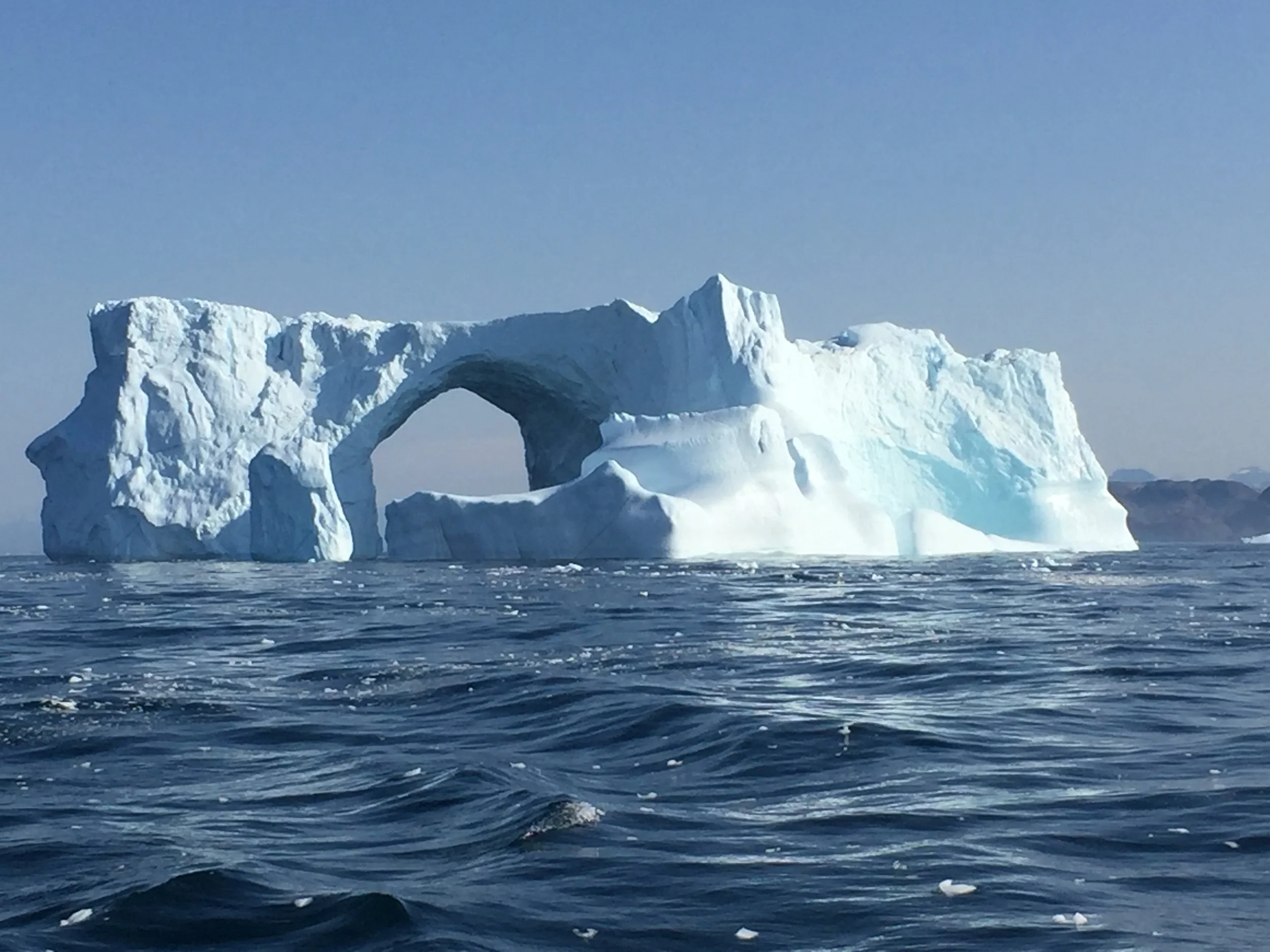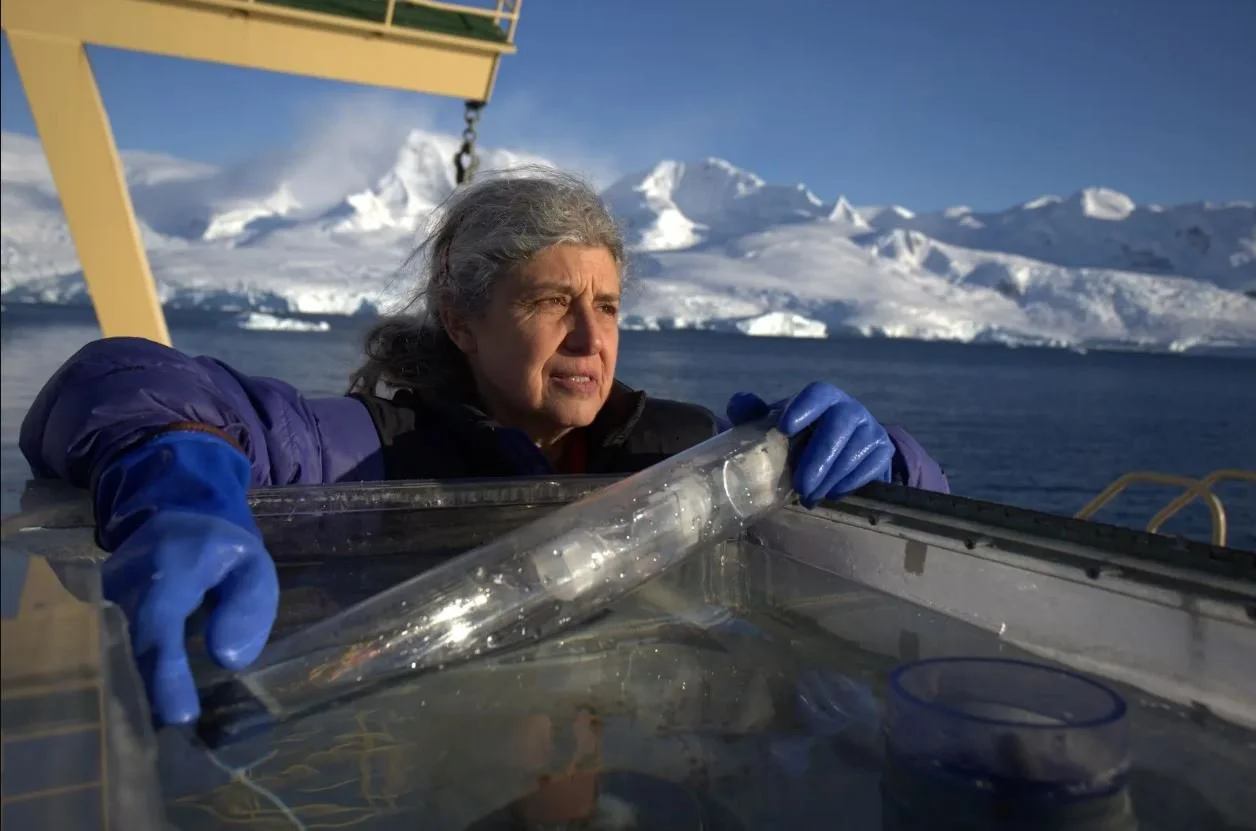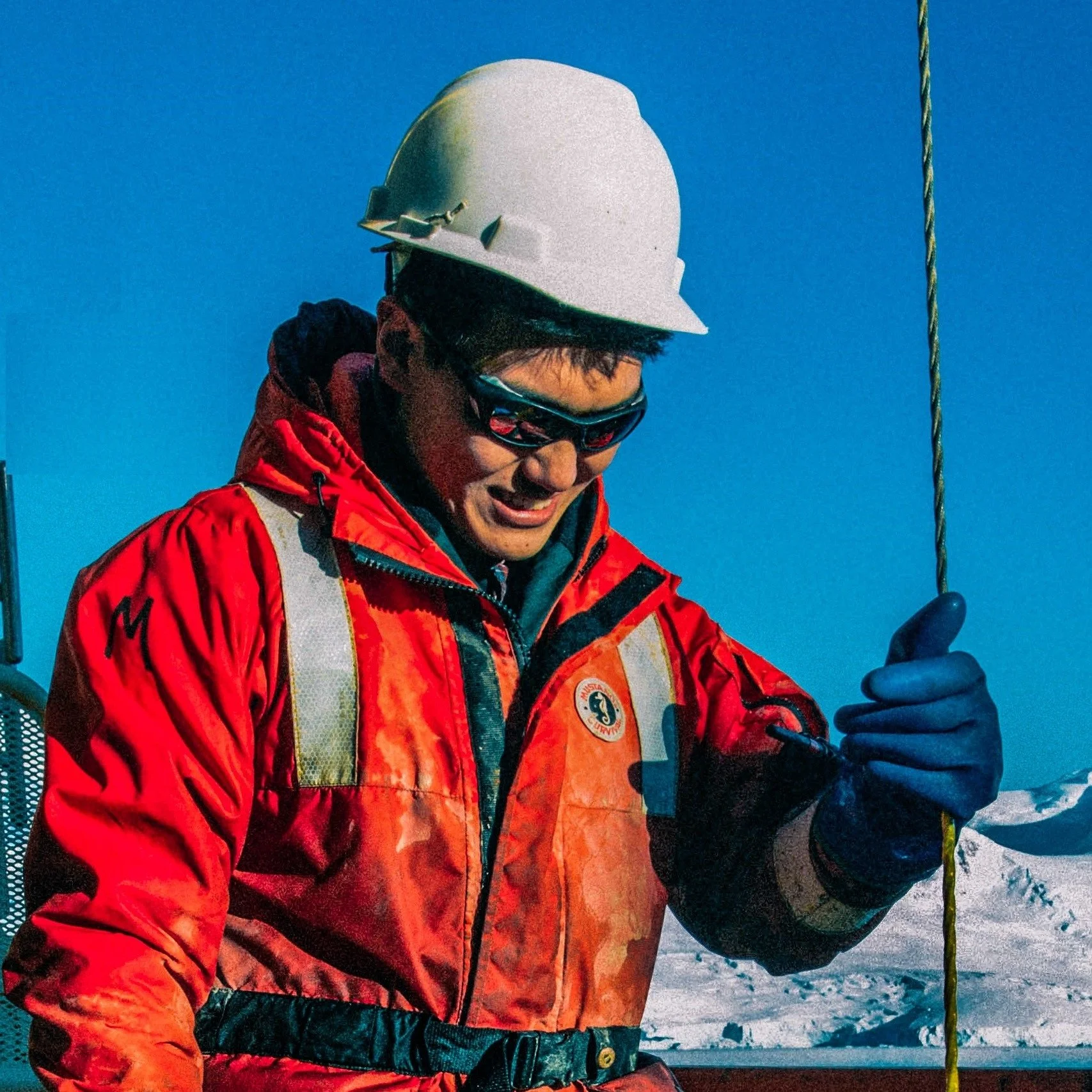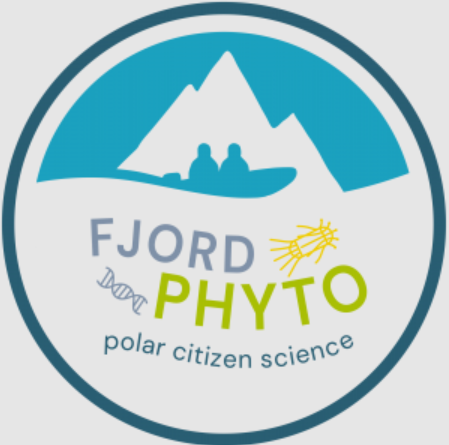Along with the use of remote sensing, we collaborate with tour ships and their guests to collect valuable ocean data to understand the relationships between iceberg meltwater and the food web in Greenland’s coastal waters.
IceEco: Iceberg Ecosystems
Our Team
Maria Vernet, PhD
Dr. Maria Vernet is a marine phytoplankton ecologist specializing in polar environments, both Antarctic and Arctic. She joined Scripps Institution of Oceanography in 1986 where she was introduced to polar phytoplankton while conducting research in the Barents Sea and the western Antarctic Peninsula. Since then, she has participated in more than 40 oceanographic research cruises. Her approach has been primarily experimental, based on laboratory and field studies. For the past 25 years, Dr. Vernet's research has focused on ice-phytoplankton interactions at the ocean boundaries, studying plankton response after Antarctic ice-shelf breakup, multi-year ice in the Weddell Sea, the effect of drifting icebergs on plankton dynamics and more recently the influence of glacier meltwater on coastal ecosystems in Antarctic and Greenland fjords. Icebergs have the capacity to attract plankton by their presence, combined with nutrient delivery while they melt, they support phytoplankton growth, attract zooplankton, and provide foraging hotspots for marine birds, supporting the biodiversity and function of Arctic ecosystems. After participating in the FjordEco interdisciplinary project and leading the FjordPhyto citizen science project in Antarctica, Dr. Vernet is now involved in the Iceberg Ecosystems project to combine her experience on phytoplankton and icebergs with coastal ecosystems in Greenland coastal waters in collaboration with the tourist ship industry. The aim is to sample along the western Greenland fjords to obtain valuable scientific data while engaging visitors in research. Through the IceEco project, her group is increasing our capabilities to monitor meltwater through remote sensing technologies and investigating the ecological relationships with meltwater and icebergs in coastal Greenland waters.
Rick A. Reynolds, PhD
Dr. Rick Reynolds is a Project Scientist at the Scripps Institution of Oceanography and serves as a Co-Investigator on IceEco. Rick has extensive expertise in phytoplankton ecology, marine optics, and satellite remote-sensing, and has participated in several research programs spanning both polar regions. His current research interests include measurements and modeling of radiative transfer within the ocean, the optical properties of seawater, polar phytoplankton ecology, and the development of optical tools for studying ocean ecology and biogeochemistry. Rick received his Ph.D. from the University of Southern California (1996) and his B.S. from Bowling Green State University (1986). He has served on several professional panels including various NASA science teams and international working groups.
Jack B. Pan, PhD
Dr. Jack Pan is the founder and Lead Oceanographer of Ocean Motion Technologies, Inc.. Before continuing his research work at Ocean Motion, he was a Fellow at NASA's Jet Propulsion Laboratory (JPL). Jack received his Ph.D. from Scripps Institution of Oceanography (SIO, UCSD). Prior to SIO, he worked as a consultant and team lead at JPL and led the development of satellite remote sensing projects on coastal ocean monitoring. Jack has also participated in several polar research expeditions to Antarctica and is a recipient of the Antarctica Service Medal for his instrumentation work and sampling in extreme environments. Jack is also an avid traveler and photographer.
Tammy M. Russell, PhD
Dr. Tammy Russell is a marine ornithologist and postdoctoral researcher at Scripps Institution of Oceanography. Her research focuses on understanding the habitat use and foraging ecology of marine birds to inform conservation and evaluate ecological impacts from climate change. She received her A.S. from Mt. San Jacinto College, B.S. in Ecology and Evolutionary Biology from UC Santa Cruz, and M.S. in Marine Biology and Ph.D. in Oceanography from Scripps Institution of Oceanography, UC San Diego. Her research has taken her on many research cruises including the U.S. West Coast and across the southern South Atlantic, to seabird colonies along California and Antarctica, and has presented her work at several international conferences, including the United Nations Climate Conference. Dr. Russell’s current research spans across the globe, including the North Pacific, the Southern Ocean, and Greenland. Her work with IceEco will focus on understanding the ecological impacts of meltwater and icebergs in coastal Greenland, including how these characteristics impact the abundance and community composition of seabirds and how this may change in the future.
Nina J. Karnovsky, PhD
Dr. Nina Karnovsky is the Willard George Halstead Zoology Professor of Biology at Pomona College in Claremont, California. Karnovsky teaches ecology and evolution courses and mentors many undergraduate students in conservation research projects. Karnovsky’s research is focused on how seabirds respond to changes in the ocean. She has studied seabirds across the globe from Antarctica to the Arctic. Karnovsky has a particular interest in how reproductive success, diets, stress levels and foraging behavior vary with oceanographic conditions. She received her B.A. from Wesleyan University and a Master’s of Science from Montana State University, where she studied the diets of Pygoscelid penguins breeding along the Antarctic peninsula. She received her doctorate from University of California, Irvine. Her PhD work was focused on the diets and distributions of Arctic seabirds breeding along the west coast of Greenland in the North Water polynya area and on the island of Spitsbergen. Currently, she and students are assessing the plastic in the diets of albatrosses breeding in Hawaii and characterizing fish in the diets of skuas breeding in Antarctica.











